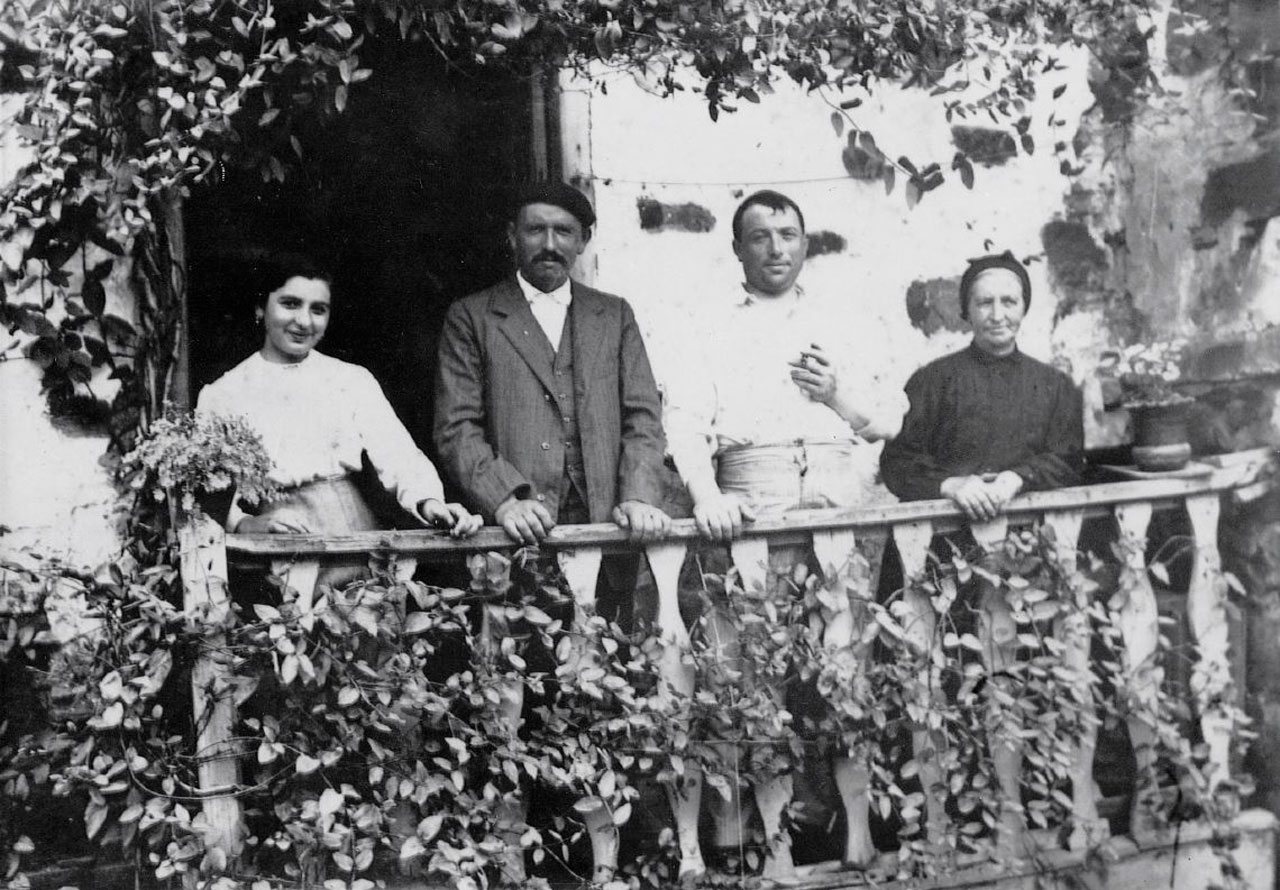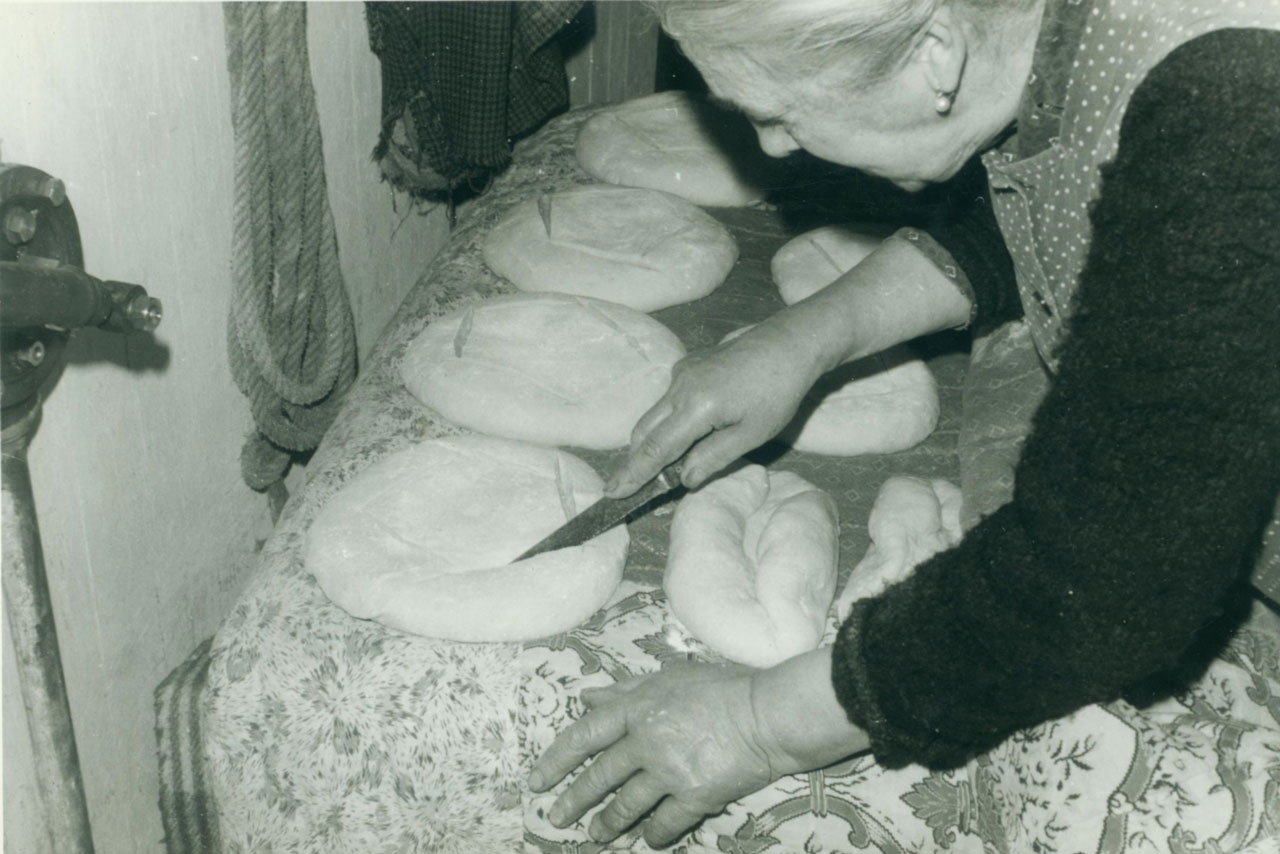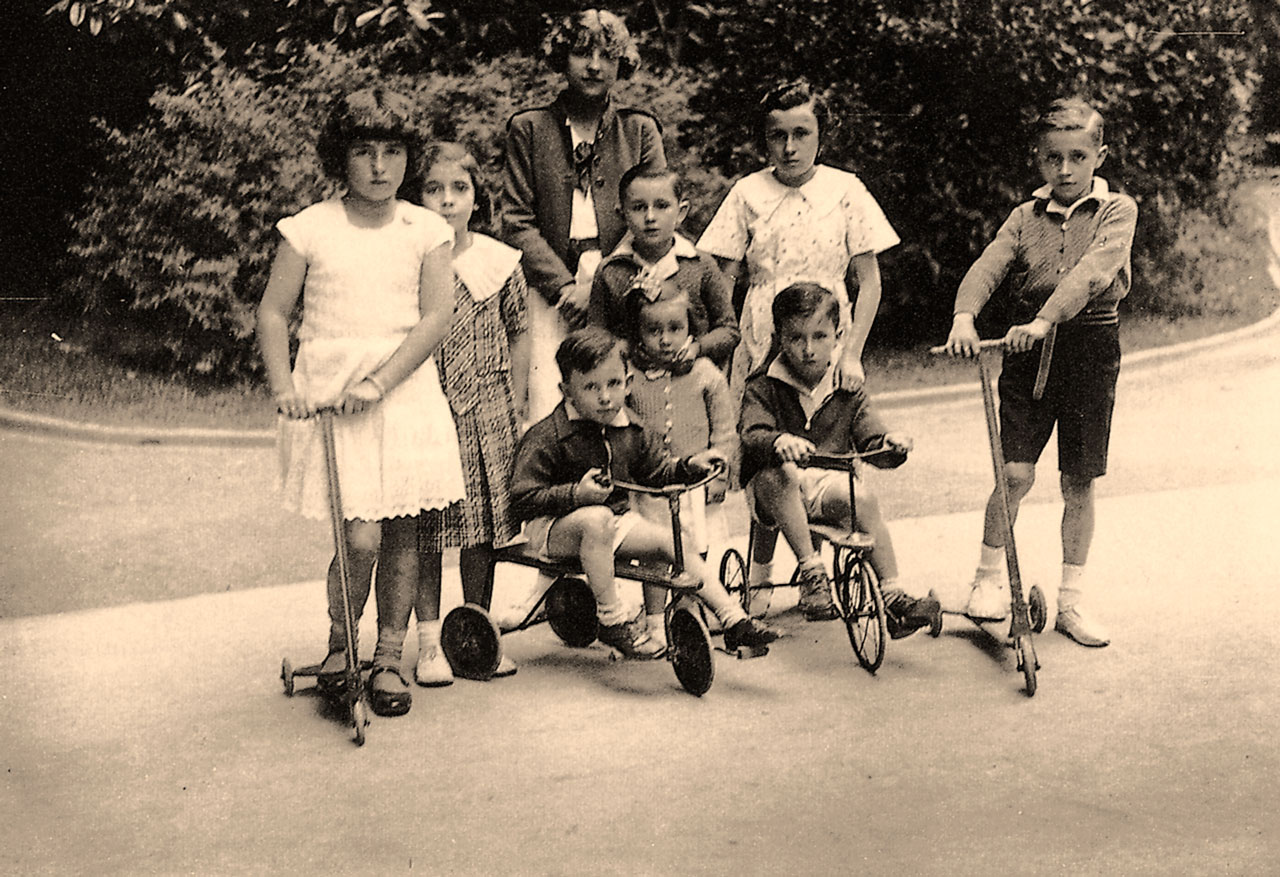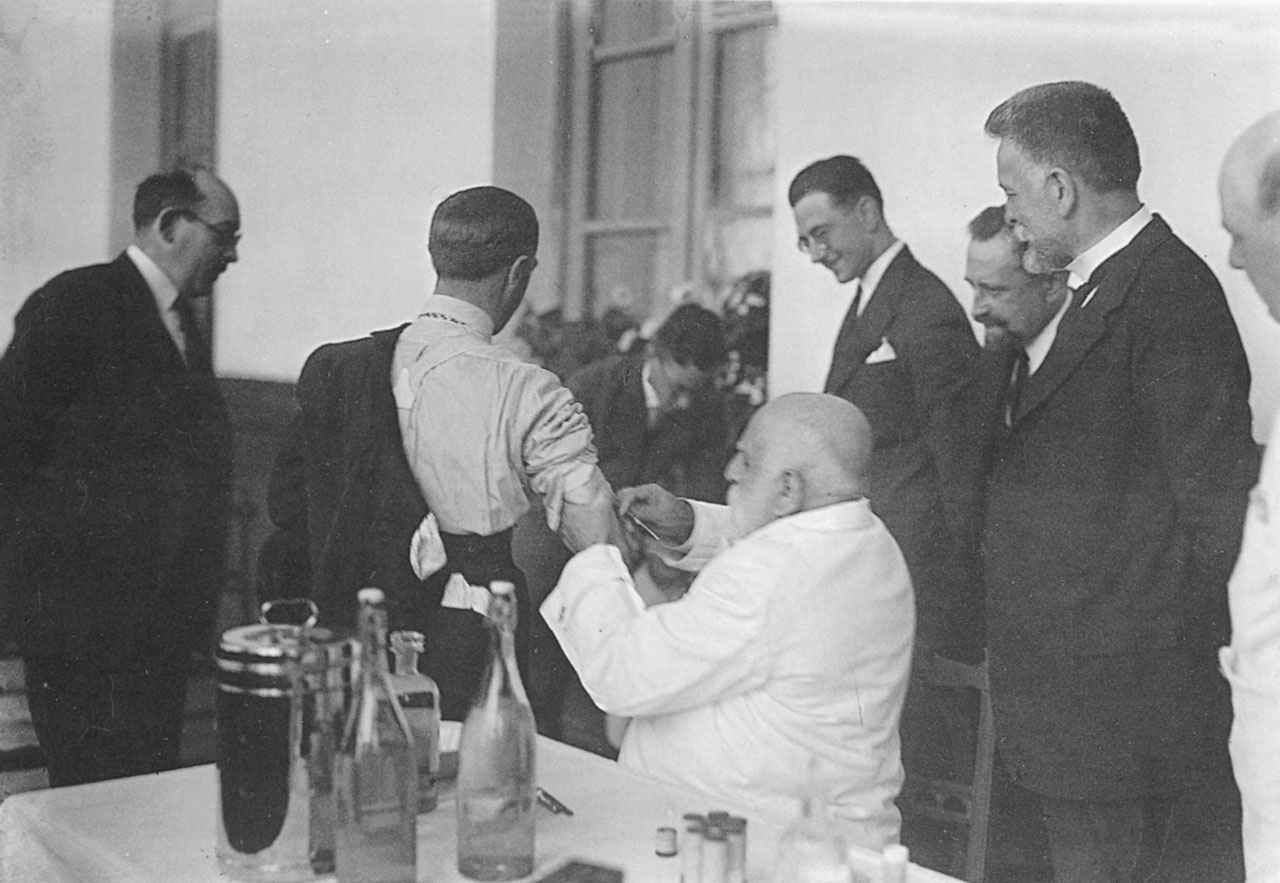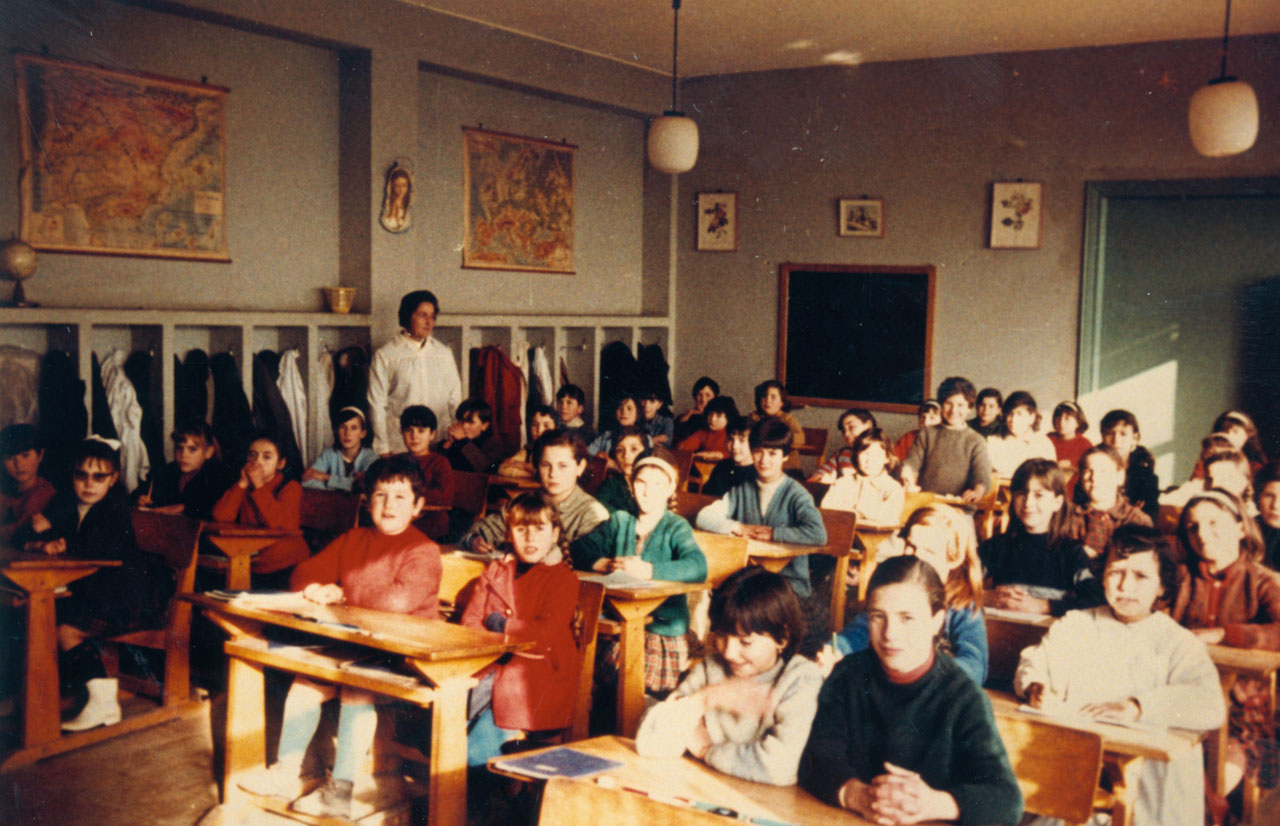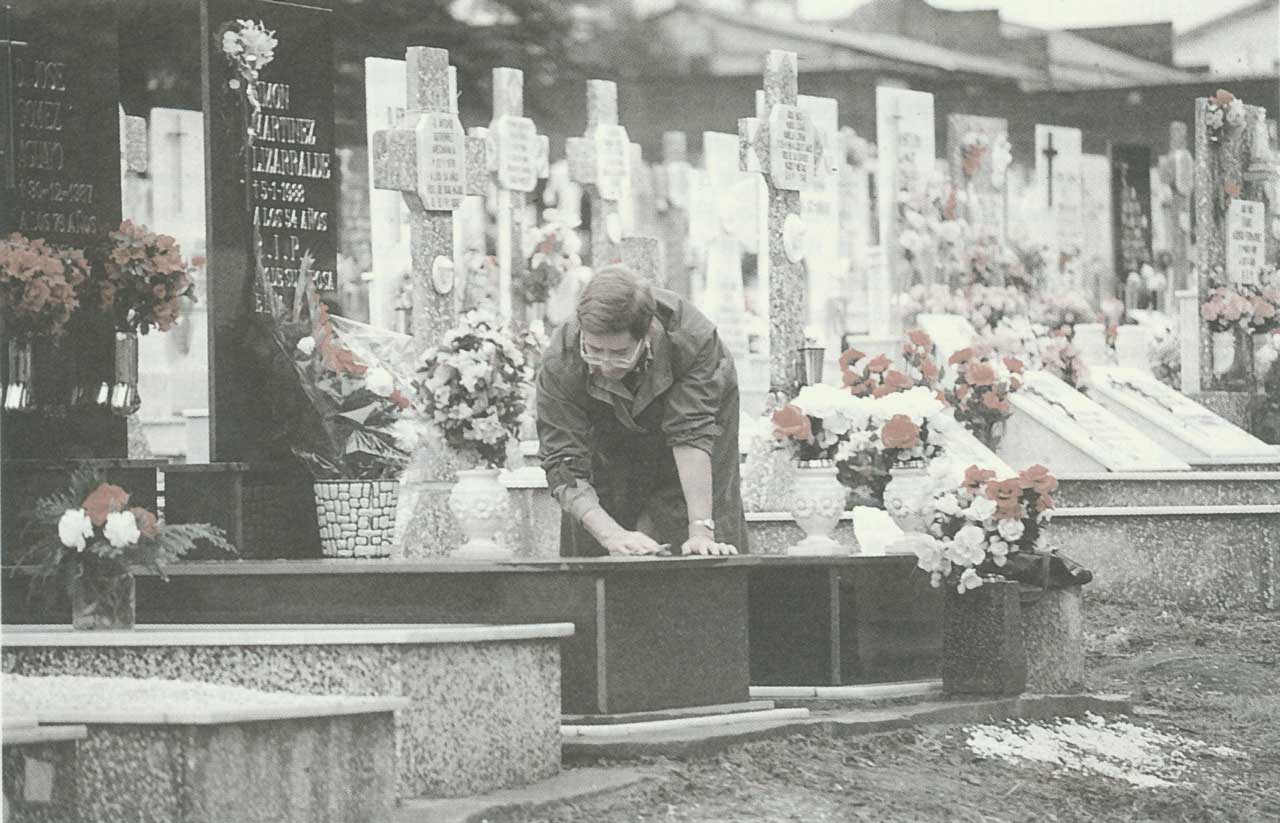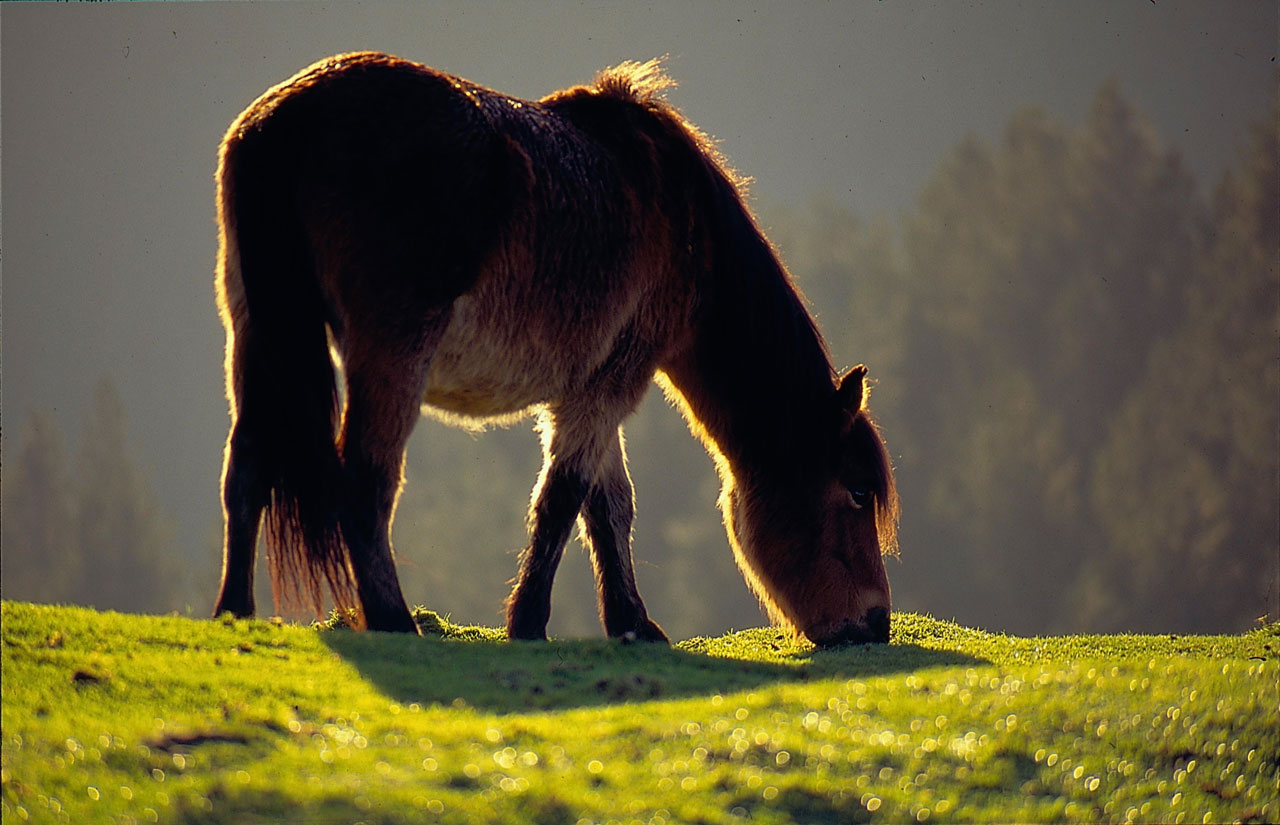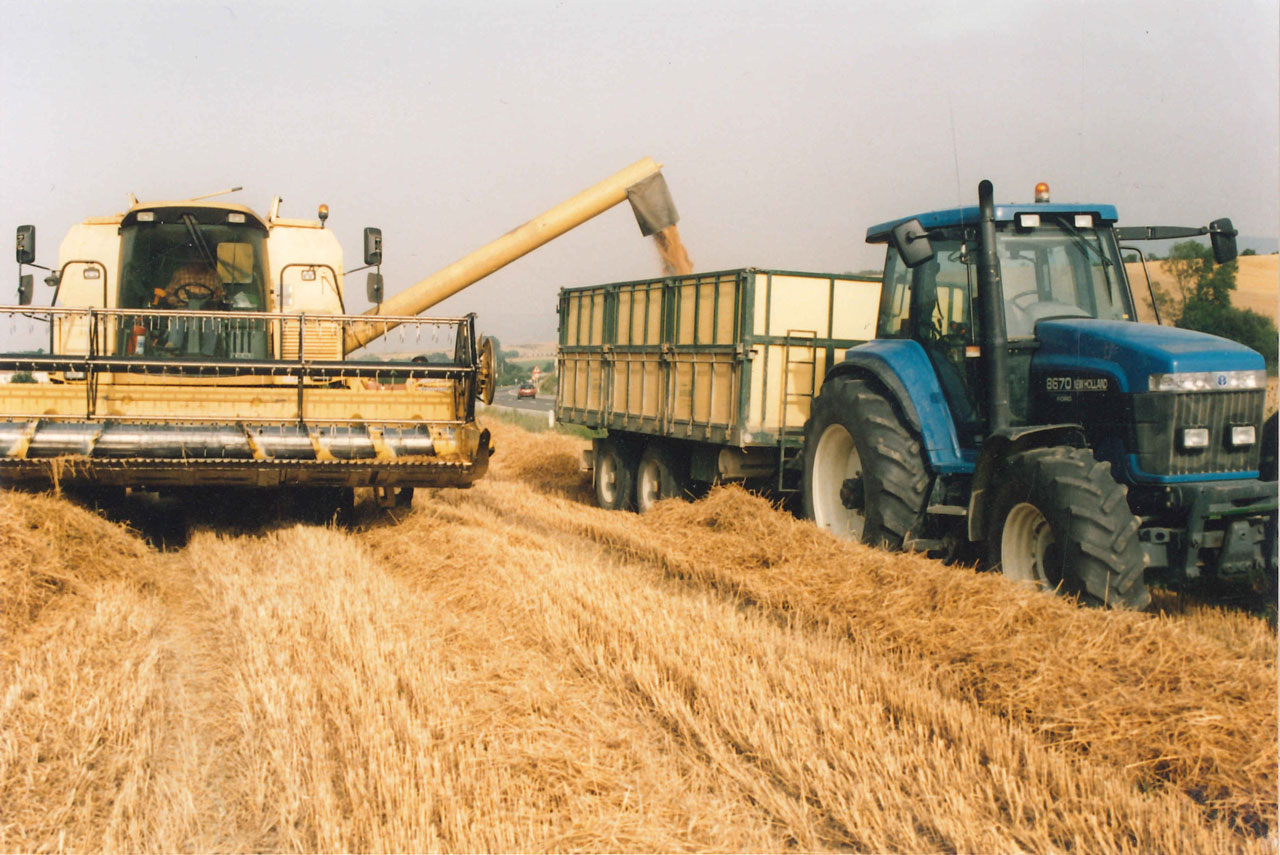Old and young husband and wife. Areatza (B), beginning of the 20th century. Source: Rubén de Las Hayas’ private archive.
House and Family in the Basque Country


House and Family in the Basque Country
The aim was to ensure that the family wealth, taken to be the farmstead and its belongings, would be passed on in full or only slightly diminished, and improved if possible, from parents to their offspring.
Family Diet in the Basque Country


Family Diet in the Basque Country
Donde no hay ni pan ni pollos, el horno no está para bollos. If there’s no bread or chicken, you shouldn’t bake rolls.
Children riding scooters and tricycles at Florida Park. Source: Municipal Archive of Vitoria-Gasteiz: Ceferino Yanguas.
Children’s Games in the Basque Country


Children’s Games in the Basque Country
Humans play games throughout their lives; however, that activity has a clearly different role for children and adults.
Traditional Medicine in the Basque Country


Traditional Medicine in the Basque Country
Pharmaceutical products have gradually replaced traditional cures.
Rites from Birth to Marriage in the Basque Country


Rites from Birth to Marriage in the Basque Country
Maritxu-teilatuko, gona gorriduna, eutsi hagin zaharra ta ekarzu barria. Popular recitation
Funeral Rites in the Basque Country


Funeral Rites in the Basque Country
Omens of death included those associated with strange behaviour by some domestic animals, mainly dogs and cockerels.
Grazing in Eneabe. Zeanuri (B), 1996. Source: Labayru Fundazioa Photograhic Archive: José Ignacio García Muñoz.
Livestock Farming and Shepherding in the Basque Country


Livestock Farming and Shepherding in the Basque Country
Two millennia ago Pliny distinguished Vasconum saltus, humid and wooded, from Vasconum ager, with its grain fields and vineyards. That distinction still remains today, with regard to livestock farming.
Agriculture in the Basque Country


Agriculture in the Basque Country
Ezkur urte, laborte urte. Acorns a plenty, a year of prosperity.
